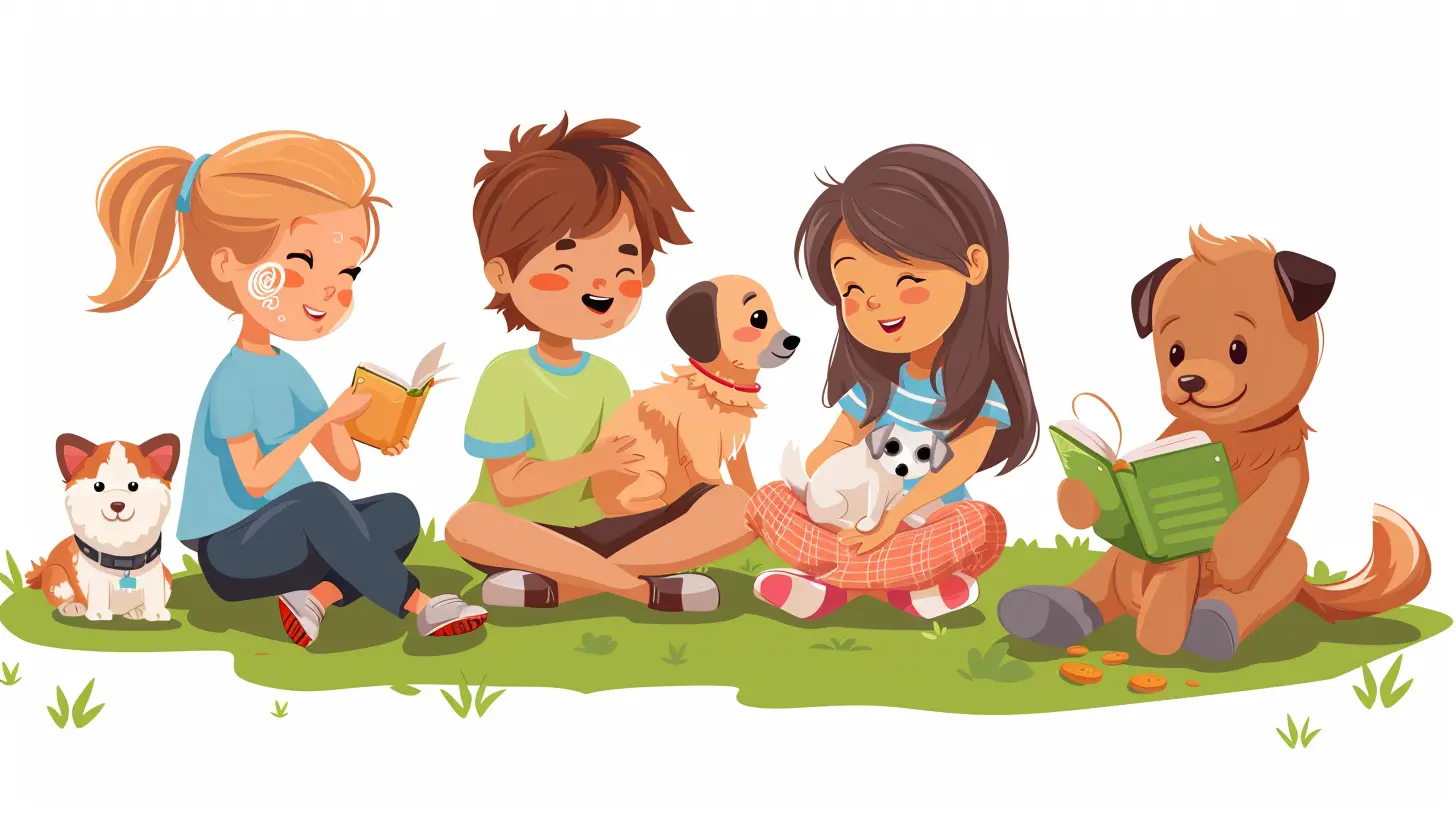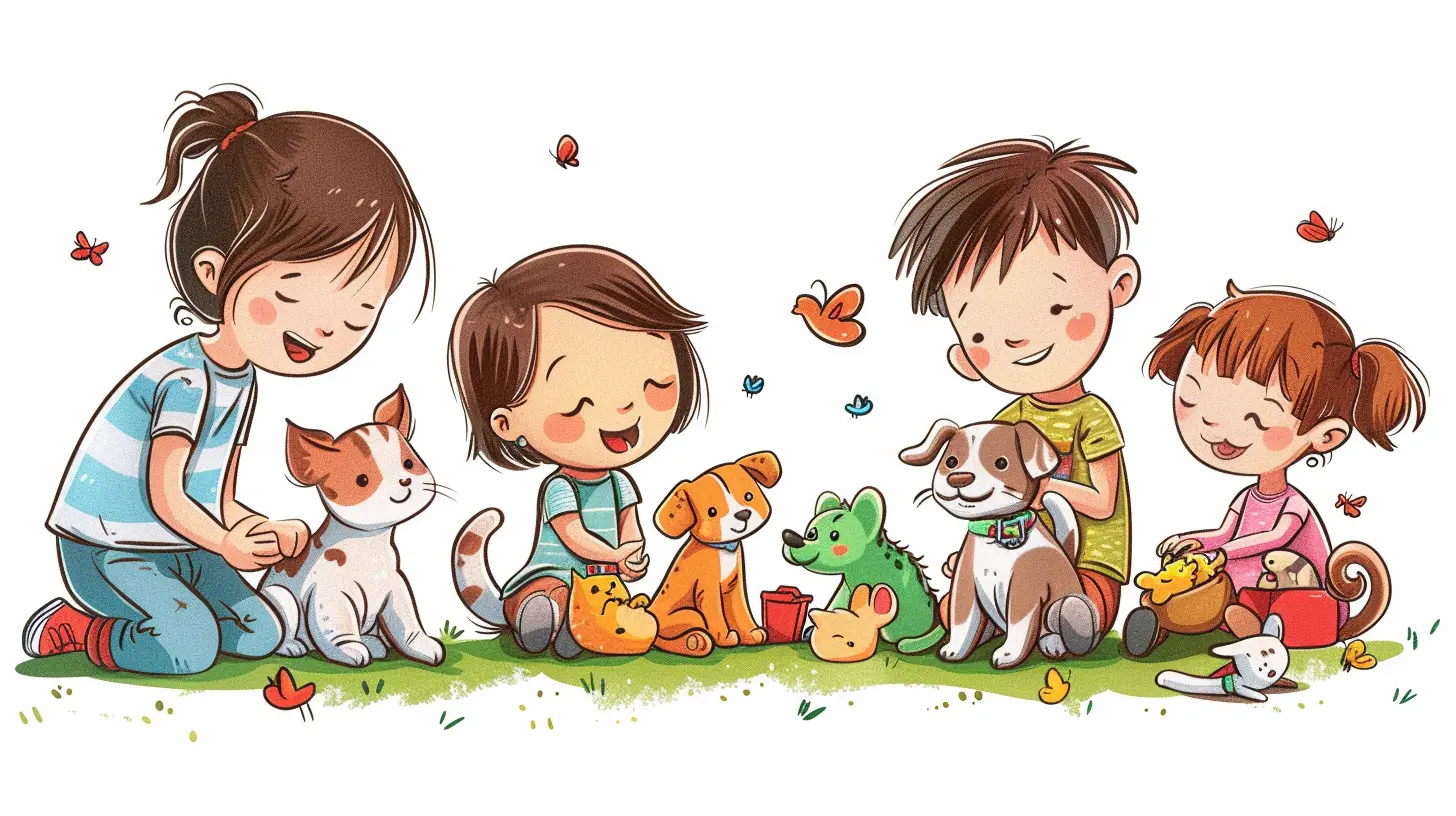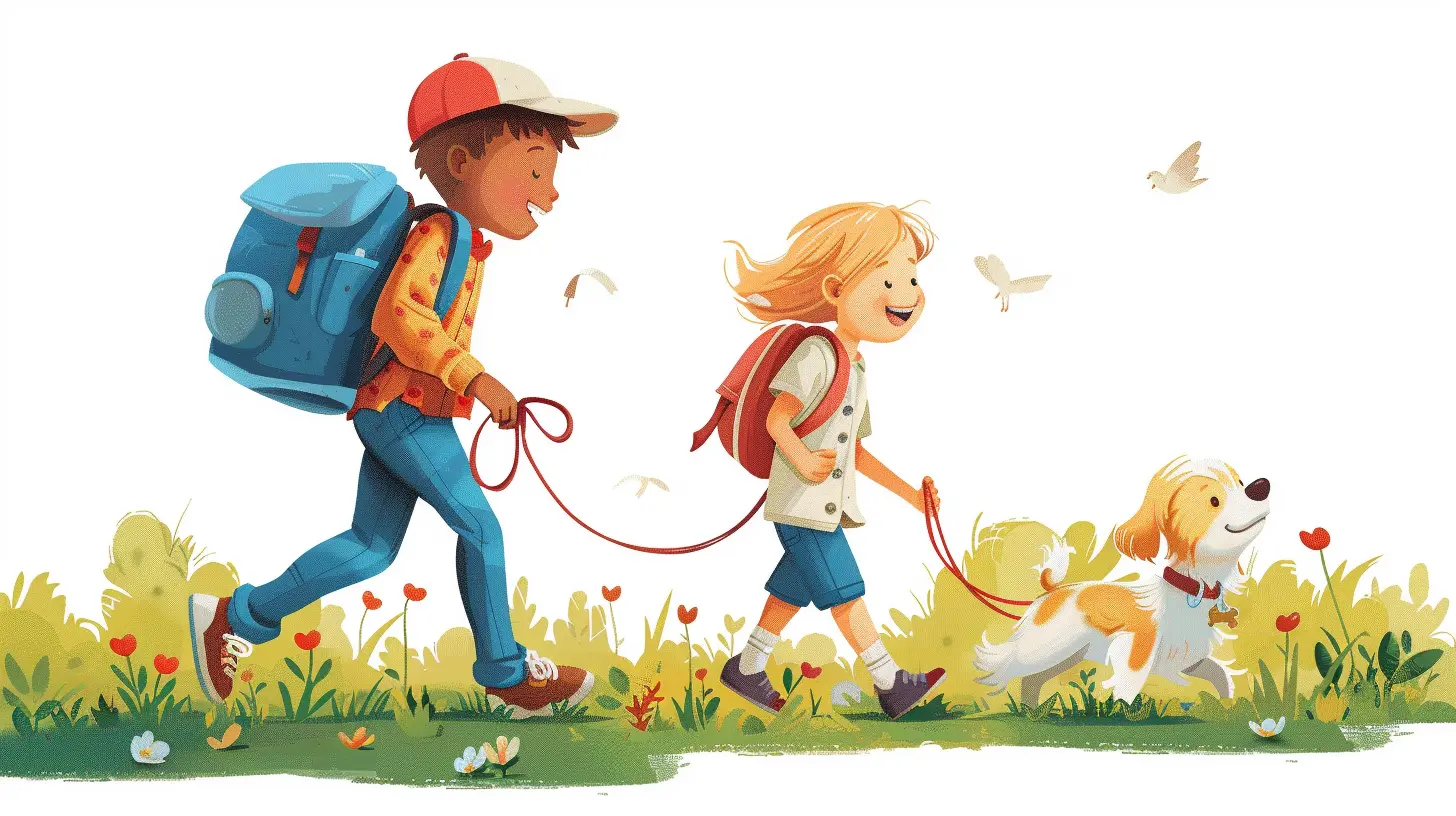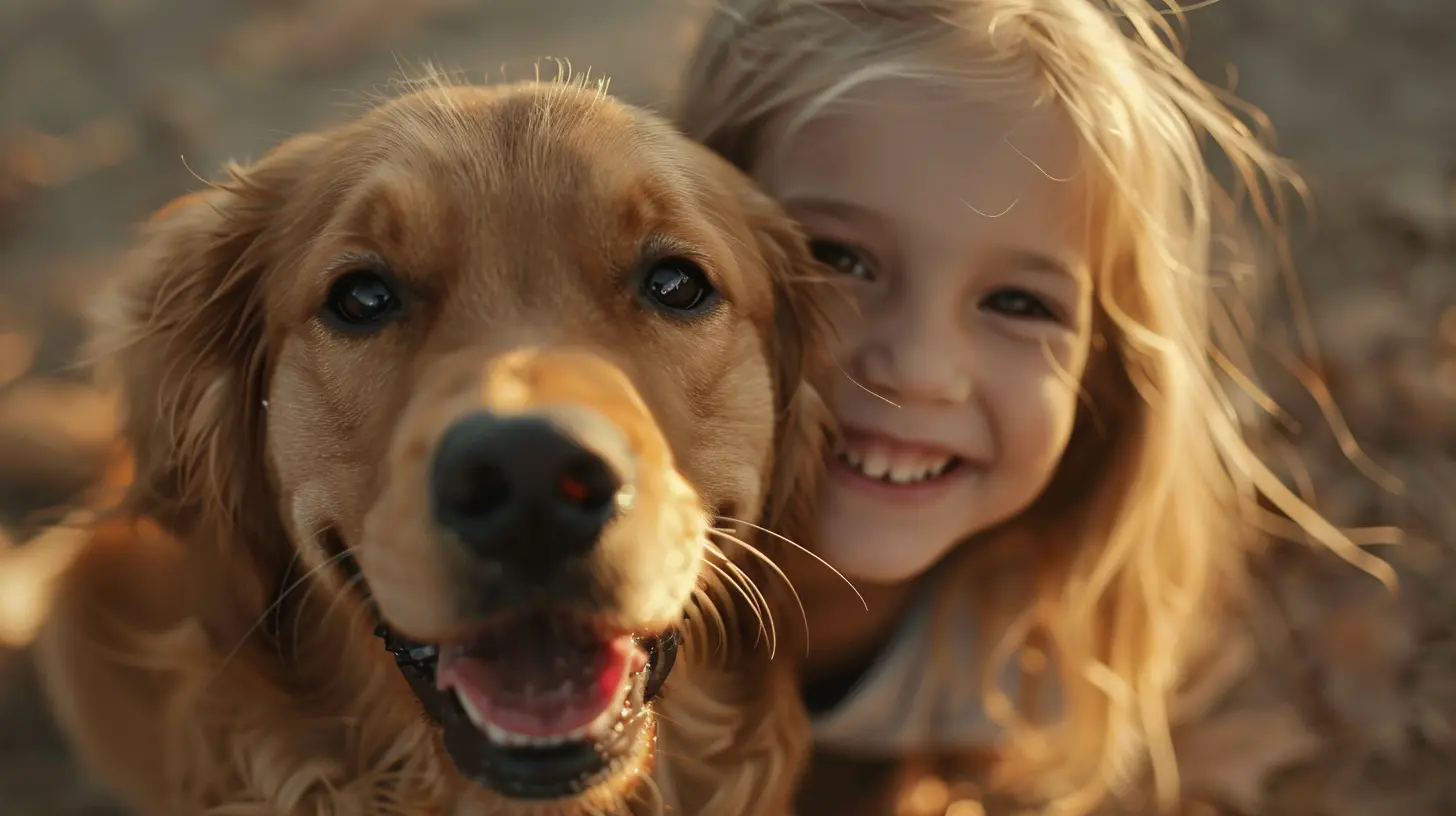Teaching Responsibility Through Pet Care After School
22 September 2025
As parents, we all want our kids to grow into responsible, kind, and compassionate individuals. But how do we teach them these values in a meaningful way? One of the best ways is through pet care! When kids take care of a pet, they learn responsibility, empathy, and important life skills.
If your child has free time after school, why not use it as an opportunity to teach responsibility through pet care? Let’s dive into how pet care can shape your child’s character and foster responsibility in a fun and engaging way.

Why Pet Care Is a Great Way to Teach Responsibility
1. Creates Consistent Daily Routines
Pets thrive on routine. Whether it's feeding them at a certain time, taking them for walks, or cleaning their habitat, pets need daily care. This consistency helps kids understand the importance of sticking to schedules, which is an essential aspect of responsibility.2. Teaches Accountability
When kids are responsible for a pet, they quickly learn that their actions (or inactions) have consequences. Forget to feed the dog? He’ll be hungry. Forget to clean the fish tank? The water becomes dirty. This cause-and-effect lesson helps children take their responsibilities seriously.3. Encourages Empathy and Compassion
Caring for another living being teaches kids to think beyond themselves. They begin to understand their pet’s needs—when the cat is hungry, when the dog wants to play, or when a hamster needs a clean cage. This kind of empathy extends to their human relationships as well.
How to Involve Your Child in Pet Care After School
Children often have a few hours of free time after school, making it the perfect time to involve them in pet care. Here are some tasks they can take on, depending on their age and level of responsibility.1. Feeding and Hydration
One of the easiest ways for kids to be involved is by feeding their pet. Set a daily schedule where your child ensures their furry friend has fresh food and water. For younger kids, measuring out food portions can be a great way to work on math skills too!2. Daily Exercise and Playtime
If you have a dog, your child can take them for a walk or play fetch in the yard. This not only ensures the pet gets the exercise they need but also helps your child stay active. Even indoor pets, like cats or rabbits, need playtime, and your child can engage in interactive games to keep them entertained.3. Grooming and Hygiene
Brushing a cat, bathing a dog, or even helping clean a pet’s enclosure are all great ways for kids to learn responsibility. It also helps them understand the effort it takes to keep a pet happy and healthy.4. Cleaning Up After Pets
Cleaning up after pets—whether it’s scooping up after a dog, changing a litter box, or maintaining a hamster’s cage—might not be the most glamorous task, but it’s an essential responsibility. Teaching kids that pet ownership isn't just about cuddles but also about care is crucial.5. Training and Teaching New Tricks
Older kids can take on bigger responsibilities, such as training pets. Teaching a dog to sit, stay, or even do fun tricks builds patience and discipline. This process helps kids understand that persistence and consistency lead to results.
Making Pet Care Fun and Engaging
1. Turn Responsibilities Into a Game
Kids love challenges! Turning pet care into a game can make it more enjoyable. For example, keep a sticker chart with tasks like feeding, grooming, and playing. If they complete all tasks for the week, they could earn a small reward.2. Incorporate Learning Opportunities
Encourage your child to research their pet’s breed, diet, and habits. Reading books, watching documentaries, or visiting pet stores can help them feel more connected to their pet and understand their needs better.3. Encourage Bonding Activities
Let kids take their pets on mini-adventures, like walks in the park or setting up obstacle courses at home. Making pet care feel less like a chore and more like quality time strengthens the bond between pet and child.
The Life Lessons Kids Learn Through Pet Care
1. Commitment and Dedication
Owning a pet isn’t a temporary task—it’s a long-term commitment. Through pet care, kids learn that responsibilities don’t disappear overnight and that pets rely on them every single day.2. Problem-Solving Skills
What happens when the dog refuses to eat? Or if the cat scratches the furniture? When challenges arise, kids must think critically to find solutions, an essential life skill.3. Patience and Understanding
Not every pet is always in the mood to play or follow commands immediately. Learning to be patient with their furry friend teaches kids how to respect boundaries and handle frustration healthily.4. Time Management
Juggling school, homework, and pet responsibilities helps kids develop time management skills. They’ll understand that prioritizing tasks and staying organized is key to balancing their daily routine.Overcoming Challenges in Teaching Responsibility
While pet care has countless benefits, there may be hurdles along the way. Here’s how to handle common challenges:1. What If My Child Forgets Their Responsibilities?
Start with gentle reminders, but if they consistently forget, introduce logical consequences. If your child doesn’t fill the pet’s water bowl, they can’t watch TV until it’s done. This helps them understand that responsibilities must come first.2. What If My Child Loses Interest?
If pet care starts feeling like a chore, mix things up! Try new activities like teaching tricks, making homemade pet treats, or creating a DIY pet toy.3. What If My Child Feels Overwhelmed?
Break responsibilities into smaller tasks. If taking full responsibility is too much, start with small things like feeding or brushing, and gradually add more tasks as they get comfortable.
Final Thoughts
Teaching responsibility through pet care after school is one of the best ways to instill valuable life lessons in kids. It teaches them commitment, discipline, empathy, and accountability while providing an opportunity to bond with a loving companion.So, if you’ve been looking for a way to help your child develop responsibility in a fun and rewarding manner, getting them involved in pet care is a fantastic place to start. After all, what better way to learn than by caring for a furry, feathered, or scaly best friend?
all images in this post were generated using AI tools
Category:
After School ActivitiesAuthor:

Tara Henson
Discussion
rate this article
1 comments
Erica McCall
What a wonderful article! Teaching kids responsibility through pet care is such a valuable life lesson. Not only does it instill a sense of duty, but it also fosters empathy and connection with animals. Thank you for sharing these insightful tips for parents!
October 7, 2025 at 3:32 AM

Tara Henson
Thank you so much for your kind words! I'm glad you found the tips helpful. Teaching responsibility through pet care truly enriches children's lives.


